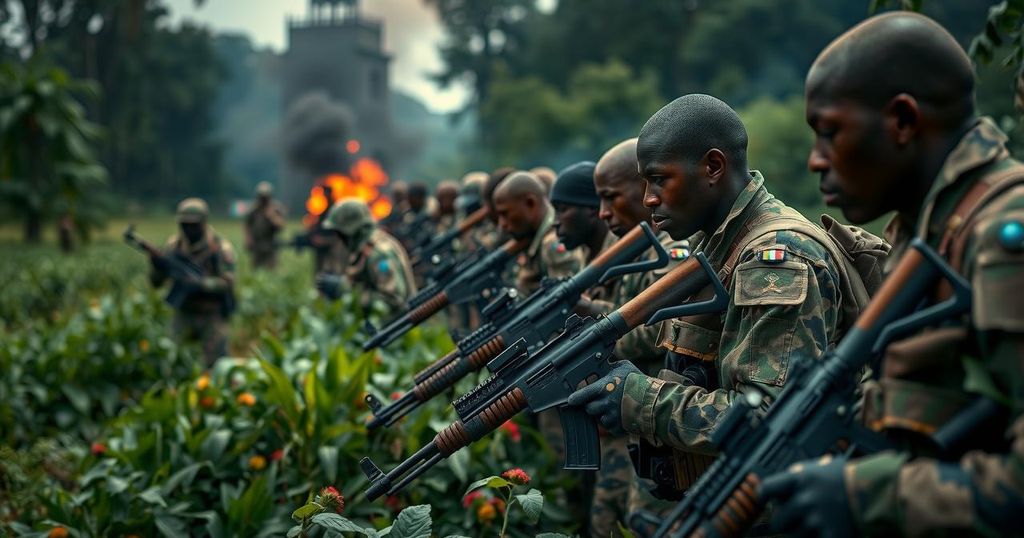Congo Accuses M23 Rebel Group of Ethnic Cleansing Amidst Escalating Violence
The Congolese government has accused the M23 rebel group, allegedly backed by Rwanda, of ethnic cleansing in eastern Congo. Minister Jacquemain Shabani stated the violence has led to a massive influx of foreign populations in Rutshuru and Masisi. This situation arises amid escalating conflict involving over 100 armed groups and has resulted in more than 7 million displaced persons, marking a significant humanitarian crisis.
On Tuesday, the Congolese government formally accused the M23 rebel group, purportedly backed by Rwanda, of perpetrating acts of “ethnic cleansing” in the eastern regions of the country. Minister of the Interior, Jacquemain Shabani, highlighted the alarming influx of foreign populations into the Rutshuru and Masisi territories of North Kivu province, claiming it resulted from the violent expulsion of local communities. He asserted, “This is what constitutes ethnic cleansing.” This accusation follows M23’s recent appointment of administrators in areas it asserts control over. The conflict in eastern Congo has intensified, wherein over 100 armed factions compete for dominance in mineral-rich territories bordering Rwanda. The resurgence of the M23 group, which primarily consists of ethnic Tutsis and separated from the Congolese military a decade ago, has significantly complicated the situation. The chaos has led to one of the most severe humanitarian disasters worldwide, with over 7 million individuals displaced—many of whom remain inaccessible to humanitarian assistance. Accusations against Rwanda include alleged involvement in war crimes and military support for the M23 group, a claim that has been refuted by the Rwandan government. However, in February, Rwanda acknowledged deploying troops and missile systems into eastern Congo, citing security concerns stemming from an increase in Congolese military presence near the border. U.N. experts estimate that approximately 4,000 Rwandan soldiers operate within Congolese territory. Despite a July ceasefire facilitated by the United States and Angola that successfully diminished clashes between Rwandan and Congolese forces, violence persists, particularly between the M23 and various pro-government militias. Recent confrontations have resulted in substantial civilian casualties, including the death of 16 villagers in August, further undermining the fragile truce aimed at aiding millions of displaced individuals.
The ongoing conflict in eastern Congo has deep historical roots, involving various armed groups competing for control over lucrative mineral resources. The M23 rebel group, which identifies primarily with the ethnic Tutsi population, was formed in response to grievances involving the Congolese government and has played a significant role in previous conflicts. The region is marked by instability, exacerbated by external influences, particularly from neighboring Rwanda, which has been accused of backing M23 militarily. The humanitarian implications of this conflict are dire, rendering millions vulnerable and in need of assistance.
In conclusion, the Congolese government’s accusations against the M23 rebel group highlight a severe escalation of violence and ethnic tensions in eastern Congo. The regime claims this situation amounts to ethnic cleansing, predominantly due to the forced displacement of local populations. With significant external influences exacerbating the conflict, and millions displaced, the international community faces pressing challenges in addressing this humanitarian crisis.
Original Source: apnews.com




Post Comment